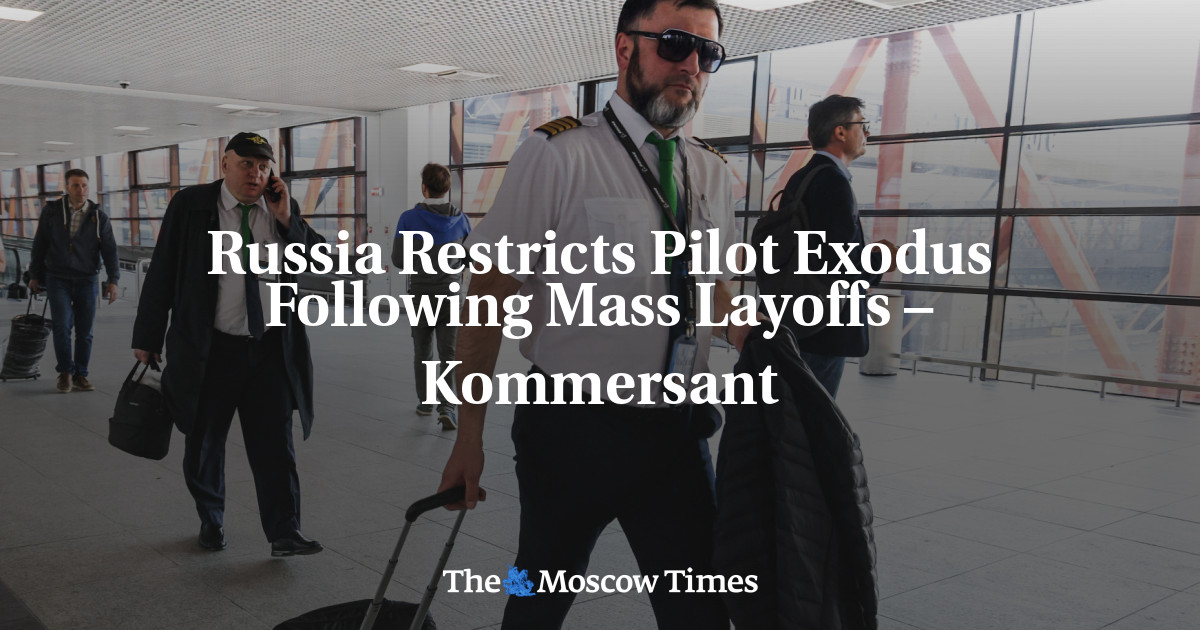
Russian aviation authorities are preventing jobless pilots from finding work with foreign airlines, the Kommersant business daily reported Tuesday, citing five unnamed industry sources.
Airlines started laying off Russian pilots in the spring after most international flights were grounded due to the risk of aircraft seizures in line with Western sanctions over Russia’s invasion of Ukraine.
The Federal Air Transportation Agency (Rosaviatsia) declines to verify Russian pilots’ licenses as part of standard procedure when receiving requests from foreign counterparts, according to Kommersant.
Rosaviatsia either ignores the validation requests altogether or cites privacy concerns in its rejection, the publication cited one source as saying.
Russian flight crew union president Miroslav Boichuk said Rosaviatsia responded to around 600 requests from foreign aviation authorities between late February and mid-June.
But only around 100 Russian pilots have so far found gainful employment, he told Kommersant.
The verification requests mainly come from countries like Turkey, Thailand, Malaysia, Vietnam and Cambodia.
Russia’s 2030 aviation industry strategy notes that the Transportation Ministry receives around 70 verification requests from abroad every month.
“This points to a high risk of pilot shortage to support future air traffic,” the strategy is quoted as saying.
Around 300 out of a pool of 15,000 pilots — more than one-third of whom have reached retirement age — also quit every year due to health reasons, it adds.
According to Kommersant’s sources, the practice of ignoring foreign validation requests dates back to 2016.
This year, they link that practice to President Vladimir Putin’s orders to maintain air traffic at 100 million passengers by the end of 2022.
Russia’s aviation sector is among the industries hardest by Western sanctions over Ukraine due to halted deliveries of new foreign jets and spare parts, as well as flight bans imposed in retaliation to the war.
The Russian government announced Monday that it plans to invest 770 billion rubles ($14.4 billion) to increase the share of domestically manufactured aircraft to 81% by 2030.